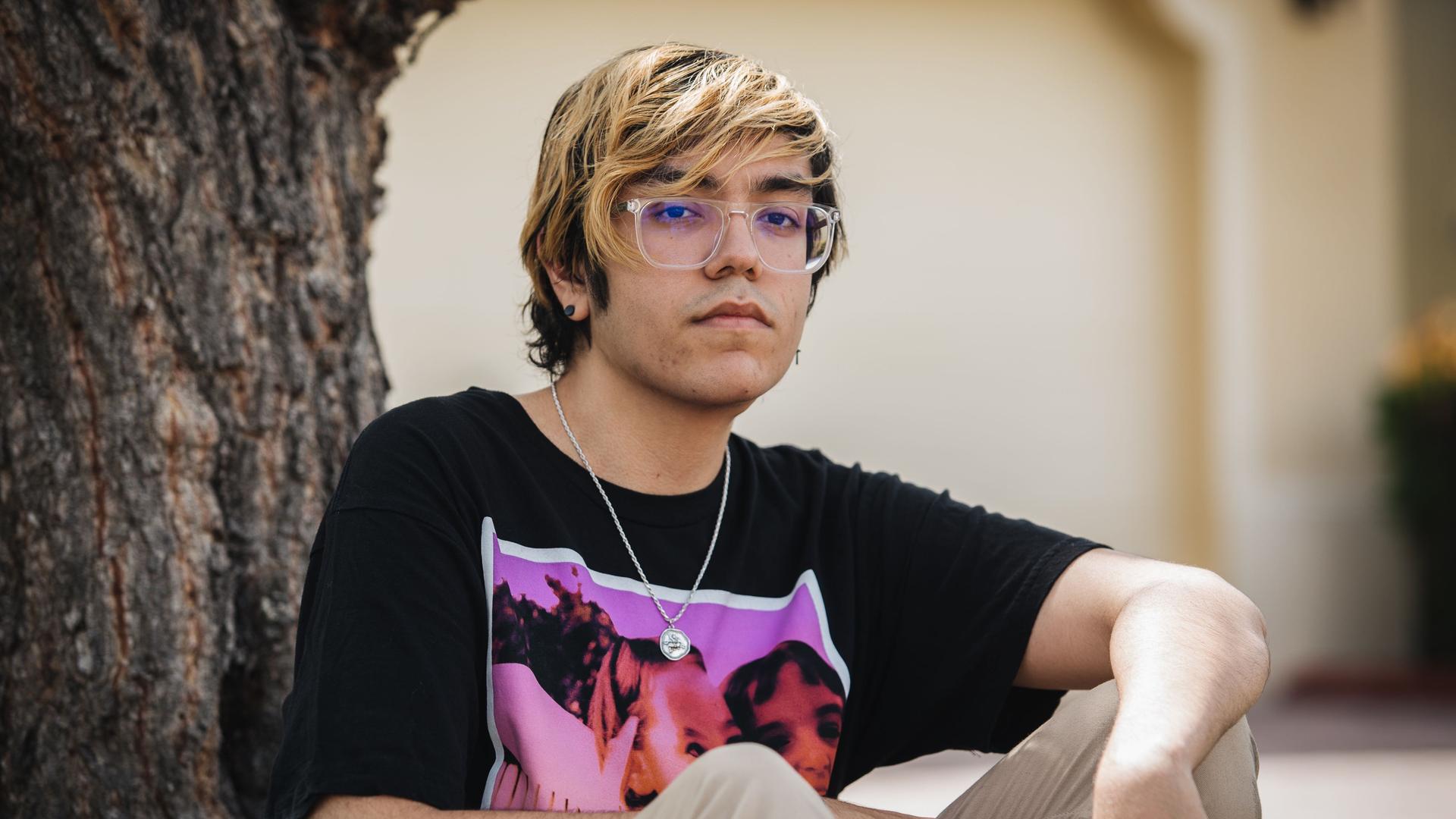This story is part of “Every 30 Seconds,” a collaborative public media reporting project tracing the young Latino electorate leading up to the 2020 presidential election and beyond.
At the beginning of the year, before the pandemic hit the US, Jacob Cuenca was an enthusiastic Republican who had just registered to vote for the first time in his life.
The 18-year-old resident of Homestead, Florida, a small city just south of Miami, followed the news closely and prided himself in reading both conservative and liberal takes on current events in order to get a balanced picture.
Related: We followed eight young Latino first-time voters all year. Here’s how they view the 2020 election.
He was a reluctant supporter of President Donald Trump — that is, until the pandemic hit. In his view, Trump’s response to the coronavirus has been pretty underwhelming.
“He has fallen,” Cuenca said of the president. “There’s no way he’s going to be able to resurrect himself.”
Since then, Cuenca has shifted his support to Joe Biden, the Democratic nominee for president, albeit with some skepticism.
Earlier on, Cuenca was looking forward to participating in the democratic process for the first time. But between the 2020 political campaigns and now, his enthusiasm has waned. Cuenca has simply stopped paying so much attention to it all. And he’s grown more cynical of politics in general.
“I kind of already made up my mind of who I think I’m going to vote for. And I don’t think it’s going to change,” Cuenca said in August.
The pandemic has upended every segment of Cuenca’s life. His dad’s work hours got cut, hurting the family’s income.
Related: First-time Latina voter in California: Trump puts ‘his people first’ at others’ expense
Cuenca was supposed to be attending freshman year of college at the University of Denver, where he got a scholarship. But instead, he is with his family in Homestead. He plans to start attending classes in January, but says he is just killing time until then.
Unable to find a job and not studying, Cuenca has been sleeping the days away and moping around. He’s taken to drawing and doing other arts and crafts projects with clay to pass the time.
“I made an ashtray, but I told my mom it was a box,” he laughed.
Cuenca’s Mexican American mom is a Democrat, and his Cuban American dad is a Republican. Both of their views have rubbed off on him politically.
Cuenca says he hopes to be rich one day, and he doesn’t want to be taxed any higher than anyone else. At the same time, he says, he sees the upside of more affordable education programs and taking bold steps to address climate change.
Related: This undecided Latinx voter wanted police and prison reform on the ballot
There’s also history. Democrats have traditionally helped pull the nation out of recessions, he said.
“I still consider myself a conservative. It’s just like right now, with the Republican going against the Democrat, I’d rather vote for the Democrat this time,” he said. “But hopefully, next time maybe Mitt Romney or somebody like that will run.”
Cuenca received his vote-by-mail ballot at the beginning of October, and likened it to “taking a Scantron.” Cuenca handed his completed ballot to his mom to put in the mail: “It was a little bit anticlimactic.”
He voted to increase Florida’s minimum wage to $15 an hour. He voted for Biden, but split his ticket to vote for Republican Miami-Dade Mayor Carlos Giménez in a congressional race for Florida’s 26th Congressional District.
Related: Explainer: American voters never forget — it’s the economy, stupid
Voting for a Democrat here and a Republican there is totally normal for Cuenca. He says that’s because he cares about candidates and their policies, not their “gang” affiliations, which he compares to hip-hop rivalries — West Coast against East Coast.
“I hate that whole mentality,” he says.
The partisan bickering has made him start to tune out politics; for him, the fighting overshadows the issues.
Like many other voters, Cuenca doesn’t fit squarely into one political party or narrative. He resents the two-party system but doesn’t know how to break free of it.
For him, the whole democratic process has felt sloppy, disjointed and disappointing.
He certainly isn’t alone: “My dad the other day was talking about politics, and he was like, ‘Every four years, it’s going to be the most important election of your life. And that’s what it’s going to be until you die,’” Cuenca said. “And he’s like, ‘Does it ever really matter? Maybe. Am I still going to vote? Yeah. But does it ever really change? Probably not.’ … Someone who’s lived that long and that’s what they say about voting in our country. It kind of sucks.”
Our coverage reaches millions each week, but only a small fraction of listeners contribute to sustain our program. We still need 224 more people to donate $100 or $10/monthly to unlock our $67,000 match. Will you help us get there today?
